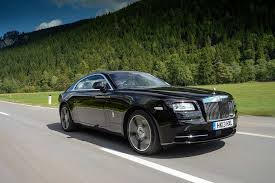In an assertive crackdown on tax evasion among high-end automobile proprietors, the Bengaluru transport authorities impounded a fleet of 30 opulent vehicles, including marques such as Ferrari, Porsche, BMW, Mercedes, Audi, Austin, and Range Rover. The large-scale operation was conducted on Sunday as part of an intensified initiative to reinforce fiscal compliance within the luxury vehicle sector.
Helming this enforcement drive was Transport Deputy Commissioner C. Mallikarjun, who, alongside a task force of 41 officials—including Regional Transport Officers B. Srinivas Prasad, Deepak, Srinivasappa, and Ranjit—executed the seizure. A senior official from the department revealed, “These premium automobiles were navigating state roads while circumventing their obligatory tax liabilities. Consequently, notices have been dispatched to recuperate an estimated Rs 3 crore in unpaid dues from the confiscated vehicles.”
This decisive measure underscores the department’s unwavering commitment to curbing tax violations, ensuring that even the most affluent vehicle owners adhere to statutory financial obligations.
The transport department has been meticulously tracking down high-end automobiles that have sidestepped tax mandates, intensifying its crackdown on defaulters. This latest enforcement action is a continuation of persistent efforts to uphold compliance and mitigate fiscal losses for the state.
Meanwhile, Bengaluru residents have taken an active role in aiding traffic law enforcement by leveraging their smartphones to report infractions. The Public Eye app, introduced a decade ago by the city’s traffic police, has facilitated the documentation of an astounding 16.6 lakh violations. Of these, law enforcement authorities have validated 14.3 lakh cases, culminating in Rs 25 crore in fines imposed on approximately 5 lakh offenders. The most frequently flagged transgressions include riding without helmets, unauthorized parking, and perilous driving.
Before issuing challans, authorities meticulously verify complaints to ensure authenticity. A former Bengaluru Deputy Commissioner of Police (Traffic) elaborated on the initiative, stating, “Public Eye empowers citizens to take an active role in upholding road safety regulations. The surge in reported violations underscores a growing sense of civic responsibility and awareness, fostering community participation in law enforcement efforts. Additionally, sustained public awareness campaigns have contributed significantly to this behavioral shift.”
Fluctuations in the number of reported infractions can be attributed to various factors, including heightened vigilance during the Covid-19 lockdowns and occasional technical difficulties with the app. To counter such challenges, a newly developed platform, ‘Astram,’ has been introduced, offering enhanced functionality to streamline the reporting process and improve user experience.
Professor Ashish Verma of the Indian Institute of Science highlights that the surge in reported violations reflects mounting public frustration and the growing pressure on authorities to act. He emphasized that the ultimate objective of the app is not merely to document infractions but to bring about a tangible reduction in traffic violations over time.
Not all users are happy with the app’s performance. Ashwin Sathyaseelan, an IT professional, expressed concerns about the lack of transparency in follow-ups on “resolved” cases. He mentioned, “When a complaint is filed, it stays ‘open’ until the Bengaluru Traffic Police (BTP) reviews it. It is then labeled as either ‘resolved’ (violation recorded) or ‘rejected’ (ineligible). My issue is with ‘resolved’ cases—BTP claims violations are recorded, yet the Karnataka State Police (KSP) app shows no action, even months later. I reported illegal parking in August and September, and although there were weeks of delay, the complaints were finally marked as ‘resolved.’ The government expects citizens to take on 80% of the responsibility but struggles to fulfill its own 20%.”
This criticism underscores a fundamental challenge in citizen-driven enforcement initiatives—while public participation has surged, gaps in execution and follow-through continue to hinder their effectiveness.



https://vitz.ru/forums/index.php?autocom=gallery&req=si&img=4805
https://hrv-club.ru/forums/index.php?autocom=gallery&req=si&img=6937
http://terios2.ru/forums/index.php?autocom=gallery&req=si&img=4600
https://vitz.ru/forums/index.php?autocom=gallery&req=si&img=4998
https://vitz.ru/forums/index.php?autocom=gallery&req=si&img=5000
https://hrv-club.ru/forums/index.php?autocom=gallery&req=si&img=6914
https://hrv-club.ru/forums/index.php?autocom=gallery&req=si&img=6917
The recent crackdown on luxury vehicles evading taxes in Bengaluru highlights the authorities’ determination to enforce fiscal compliance. It’s commendable to see such a large-scale operation targeting high-end car owners who have been avoiding their tax responsibilities. The involvement of the Public Eye app shows how technology can empower citizens to contribute to law enforcement. However, one must wonder if these measures are enough to deter future tax evasion or if stricter penalties are needed. How effective do you think this approach will be in the long term?
https://honda-fit.ru/forums/index.php?autocom=gallery&req=si&img=7077
http://wish-club.ru/forums/index.php?autocom=gallery&req=si&img=5257
http://toyota-porte.ru/forums/index.php?autocom=gallery&req=si&img=3249
https://myteana.ru/forums/index.php?autocom=gallery&req=si&img=6644
http://toyota-porte.ru/forums/index.php?autocom=gallery&req=si&img=3251
It’s impressive to see the Bengaluru transport authorities taking such a strong stance against tax evasion, especially among luxury vehicle owners. This crackdown sends a clear message that no one is above the law, regardless of their wealth or status. The involvement of citizens through the Public Eye app is a great example of how technology can empower people to contribute to law enforcement. It’s interesting to note that so many violations have been reported and validated, leading to significant fines. However, I wonder if there are any measures in place to ensure that these fines are actually paid by the offenders. Do you think this approach will have a long-term impact on reducing tax evasion and traffic violations? Also, how can we ensure that such initiatives are consistently enforced without bias? Your thoughts would be valuable in understanding the broader implications of these actions.
https://hrv-club.ru/forums/index.php?autocom=gallery&req=si&img=7137
https://mazda-demio.ru/forums/index.php?autocom=gallery&req=si&img=6623
https://honda-fit.ru/forums/index.php?autocom=gallery&req=si&img=7322
https://mazda-demio.ru/forums/index.php?autocom=gallery&req=si&img=6631
https://vitz.ru/forums/index.php?autocom=gallery&req=si&img=4808
https://myteana.ru/forums/index.php?autocom=gallery&req=si&img=6635
https://honda-fit.ru/forums/index.php?autocom=gallery&req=si&img=7063
http://wish-club.ru/forums/index.php?autocom=gallery&req=si&img=5259
http://wish-club.ru/forums/index.php?autocom=gallery&req=si&img=5256
https://hrv-club.ru/forums/index.php?autocom=gallery&req=si&img=6921
http://terios2.ru/forums/index.php?autocom=gallery&req=si&img=4574
http://toyota-porte.ru/forums/index.php?autocom=gallery&req=si&img=3293
Клава Кока – Все Взгляды На Мне скачать бесплатно и слушать онлайн https://shorturl.fm/ywM7G
Таисия Повалий – Снегом белым (feat. Николай Басков) скачать бесплатно и слушать онлайн https://shorturl.fm/TbLer
Ace Of Base – My Dejа Vu скачать песню бесплатно в mp3 и слушать онлайн https://shorturl.fm/5bkwk
https://myteana.ru/forums/index.php?autocom=gallery&req=si&img=6635
https://mazda-demio.ru/forums/index.php?autocom=gallery&req=si&img=6481
http://terios2.ru/forums/index.php?autocom=gallery&req=si&img=4569
https://vitz.ru/forums/index.php?autocom=gallery&req=si&img=4963
Йович – Бессаме Мучо скачать бесплатно и слушать онлайн https://shorturl.fm/mX6Ou
Sun Garus Feat. & Адлер Коцба – Вольная скачать песню в mp3 и слушать онлайн https://shorturl.fm/8n7KQ
Потап и Настя – Если вдруг скачать песню и слушать онлайн
https://allmp3.pro/2676-potap-i-nastja-esli-vdrug.html
qmudec
Консультация может проходить в удобном для вас формате Психологическая помощь
и онлайн-консультации проверенных психологов и психотерапевтов 746